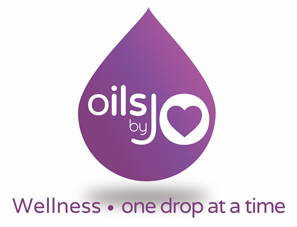Using Essential Oils for Anxiety
As many of you are aware I have been working with doTERRA Essential Oils for a number of years now and supporting clients of all ages, size, gender and for hundreds of varied ailments.
One of my biggest client base are people with
anxiety and this time of the year it seems to be with
teenagers taking exams and the pressure they feel from their school, parents and friends.

With exam season approaching for thousands of students across the country this means late night revision sessions and the risk of through the roof anxiety levels. Feeling under pressure during exam season is natural. Managed well, you can avoid the risk of it turning into stress. Some of us thrive under pressure, it can motivate us and help us perform at our best. For others, it’s the total opposite; we struggle and feel overwhelmed.
It’s a daunting time, whether you yourself are getting ready for your finals or someone in your family is about to sit their GCSE’s or A-Levels. As well as being prepared and putting in the study hours, it’s really important to take time out to relax and unwind and look after your wellbeing.
Sitting an exam can be one of the most stressful periods of time for teenagers and adults alike. Knowing you’ve got just a few hours to show you remember everything you’ve learnt during your time at school, college or university puts so much pressure. Just knowing that this is it, your chance to shine.
But there are things you can do to help yourself or someone you know; making sure that there’s a calm, distraction free workspace, plenty of snacks available and any other worries are put aside are some of the things you can be do to help, but you can also go the extra mile by tapping into the wonderful powers of essential oils to ease exam stress.
Whether it’s utilising the
calming and anxiety-reducing oils for those who are really struggling with nerves and finding the whole thing quite stressful. You can also opt for
essential oils which aid memory and concentration. Or both!
Here’s a collection which are used within the doTERRA range.
Balance is known as the grounding blend – it has Spruce, Frankincense, Chamomile and Blue Tansy. It supports a feeling of calmness, peace and relaxation. It may aid in harmonizing the various physiological systems of the body and promote tranquillity and a sense of balance.
Frankincense is primarily associated with the nervous system, where it imparts a calming and uplifting effect while at the same time increasing energy. Its ability to assist concentration indicates its long history of use as an incense and an aid to meditation. It can also be helpful in treating anxiety and tension; a few drops in an essential oil burner if you are feeling stressed, tired or overwhelmed.
Wild Orange has a relaxing effect, but is uplifting rather than overly sedating. It is beneficial for treating stress, nervous tension and related headaches.
InTune has properties studied and used traditionally for their abilities to promote calmness, focus and a balanced state of mind. Many of the oils in this blend contain high levels of sesquiterpenes which have demonstrated an ability to pass the blood-brain barrier to reach the cells of the brain. The oils in this rollerblend are Sandalwood, Patchouli, Frankincense, Lime, Ylang Ylang, Chamomile,
Lavender is the most versatile of all essential oils. It is balancing and regulating. In the long run it does tend towards sedating or calming, although initially it has a reviving effect.
Rosemary increases the circulation of blood to the brain and nervous system and can help to improve memory, concentration and mental alertness, so it is very good to use in a burner in any room where people are trying to concentrate.
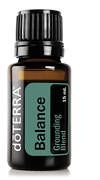
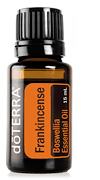
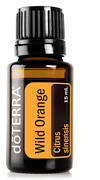
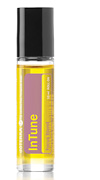
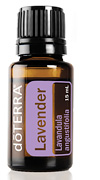
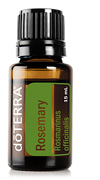
All of these oils can be used in a diffuser or as a preparation for massage when diluted in a carrier oil.
Further tips
1 – Stay Calm
2 – Drink plenty of water whilst revising to keep you hydrated. Dehydration can cause lack of energy and fatigue, so boosting your energy level can be as simple as drinking more water. Try not to have too much caffeine or energy drinks.
3 – Eating regular meals – it is so easy to skip meals and to eat quick junk food.
- Eat small meals often that contain protein, complex carbohydrates and healthy fats to avoid high and low blood sugar.
- Get plenty of Vitamin C, as an antioxidant. In one study, large doses of vitamin C reduced physical and mental responses to stress.
- Avoid refined foods, such as white bread, pasta and sugar; and choose to eat more whole foods. This will keep your blood sugar stable, which means fewer mood swings, reduced stress and a happier body.
4 – A common trigger for exam anxiety is the feeling of not having done enough. Putting in the hours pays off, but only if you use that time efficiently. Choose a quiet place to study and make sure you are not interrupted or distracted and keep your mind fresh by taking regular breaks.
GET PLENTY OF SLEEP – cramming for exams and sleeping can be really stressful , but for the best results, you need to sleep. Sleep fulfils a vital role in keeping us healthy; we need a good night’s sleep to ensure we’re feeling fit and thinking sharply.
GET SOME EXERCISE – go for a run, walk the dog, play some football or tennis with friends or practice yoga in your bedroom. The physical stress on your body can actually help relieve emotional stress, tension and anxiety.
HAVE REGULAR BREAKS – break up your revision with something fun, whether that’s seeing friends, doing an exercise class you love, indulging in a little retail therapy or having a massage. This emotional pick-me-up will do wonders. For an added wellbeing boost, book a calming and relaxing aromatherapy massage to ease away tension.
Here is some additional information from Tracey Baum
Anxiety is the fear of something that may or may never happen. It can feel all consuming and lead to anxiety or panic attacks including, feeling sick, hyperventilating, racing heartbeat, tightness in chest or around head, poor sleep patterns and lots of negative self talk about what it is you’re not going to be able to do or face.
I define anxiety as the emotional, intellectual and physical demands on us are totally overwhelmed. Now not all anxiety is bad, we need a certain level to get us motivated but it is when we are overwhelmed that we become almost paralysed, focusing only on the one area that is causing the issue.
The good news is that there are things you can do to stop the anxiety being overwhelming.
First, know that even with everything that’s causes your anxiety; the sun will still rise and the earth will continue to spin; in other words it’s not the end of the world.
Second, learn a relaxing breathing technique, this is the ONLY thing that will stop your body’s perception of a threat and therefore start your body’s natural physiological response – the flight or fight. A simple one is take a deep breath through your nose, hold that breath for a count of 3 and breathe out through your mouth for a count of 5. It takes some practice but once you have it down pat, you’ve then learnt to hit your own individual ‘factory reset default’ switch. This breathing can be done anywhere and at anytime but is effectual in allowing the brain fog or panic to subside.
Third, imagine that you have a remote control, and this remote controls your anxiety. You can press the pause button and stop everything for as long as you need; you can mute the voices or the self talk that tells you, you can’t ………; you can change the channel on to something nicer; you can delete that program entirely if you wish. YOU are in control!
Fourth, find regular things that relax you. In the example of exam stress, it’s not about the quantity of revision but the quality. Spend time with friends, doing sport, listening to music, watching TV etc, this will enable you to come back feeling refreshed and invigorated and as a consequence you will sleep better and retain more information. Download a mindfulness app, diffuse some relaxing essential oils. Find what works for you in distracting yourself from the issue and that relaxes you.
Tracey Baum, Tracey Baum Coaching, Life Coach, Hypnotherapist & Master NLP practitioner
www.traceybaumcoaching.co.uk
Some further information from Lisa Holton from Lisa Holton Coaching
First of all fear and anxiety is a natural human reaction. It alerts and saves us from impending danger. But when those feelings arise and there is no impending danger – that’s when this natural human reaction doesn’t serve us.
Sydney Banks said “if the only thing people learned was not to be afraid of their experience, that alone would change the world”
Put simply, as humans we have absolutely no control over the thoughts that occur on a daily basis. In fact, we are completely unaware of most of our thoughts; they float in and out of our subconscious like drifting clouds on a summers day.
It is only when we attach our thinking to one of those thoughts, that they then become a reality in our minds. That thinking could be sad, happy, angry or anxious and as a result, this creates the feelings associated with that thinking.
So simply understanding that these feelings will float away, like the clouds, if we just acknowledge them, yet leave them alone to pass us by (as they undoubtedly will) will afford you a freedom from anxiety being able to take control of you.
Lisa Holton,
Transformational Change Coach, Coaching Positive Change
Further Information from Barbara Mastropirro Kinesiologist
When I see a client that suffers with anxiety, whether an adult or a child, I immediately check for digestion (what the client is able to absorb), whether toxicity is present in the body (eg. in the form maybe of mercury that could be due to silver fillings) and for the function of their endocrine glands.
This is a starting point in my clinic. If one of the above shows that it needs help then I would test for nutrients, enzymes, minerals and vitamins and balance the body according to the requirements; for example lymphatic points massages, neurovascular points stimulation, energising the meridians and other techniques.
With Kinesiology, I give some home-work to clients. Meditation and gratitude diary are 2 of them.
Omega 3 also helps with anxiety as well as having food intolerances tested (I do it in clinic).
What I normally check also is whether there is a geophatic stress factor in the client’s life. This can be caused by EMF (electromagnetic frequencies), disturbances in the ground or house caused by maybe ley lines, underground water, disorganised energies in clients home. Again depending on the findings I would suggest the course of actions. I am qualified in Geomancy and I cleansed houses, gardens, lands with Feng Shui, Earth acupunctures and other techniques. Once the house energies are in balance our health also improves.
Barbara Mastropirro
, Kinesiologist Dip. A.S.K. – HbT – Geomancer
www.equilibriumvitae.co.uk/
 With exam season approaching for thousands of students across the country this means late night revision sessions and the risk of through the roof anxiety levels. Feeling under pressure during exam season is natural. Managed well, you can avoid the risk of it turning into stress. Some of us thrive under pressure, it can motivate us and help us perform at our best. For others, it’s the total opposite; we struggle and feel overwhelmed.
It’s a daunting time, whether you yourself are getting ready for your finals or someone in your family is about to sit their GCSE’s or A-Levels. As well as being prepared and putting in the study hours, it’s really important to take time out to relax and unwind and look after your wellbeing.
Sitting an exam can be one of the most stressful periods of time for teenagers and adults alike. Knowing you’ve got just a few hours to show you remember everything you’ve learnt during your time at school, college or university puts so much pressure. Just knowing that this is it, your chance to shine.
But there are things you can do to help yourself or someone you know; making sure that there’s a calm, distraction free workspace, plenty of snacks available and any other worries are put aside are some of the things you can be do to help, but you can also go the extra mile by tapping into the wonderful powers of essential oils to ease exam stress.
Whether it’s utilising the calming and anxiety-reducing oils for those who are really struggling with nerves and finding the whole thing quite stressful. You can also opt for essential oils which aid memory and concentration. Or both!
Here’s a collection which are used within the doTERRA range.
Balance is known as the grounding blend – it has Spruce, Frankincense, Chamomile and Blue Tansy. It supports a feeling of calmness, peace and relaxation. It may aid in harmonizing the various physiological systems of the body and promote tranquillity and a sense of balance.
Frankincense is primarily associated with the nervous system, where it imparts a calming and uplifting effect while at the same time increasing energy. Its ability to assist concentration indicates its long history of use as an incense and an aid to meditation. It can also be helpful in treating anxiety and tension; a few drops in an essential oil burner if you are feeling stressed, tired or overwhelmed.
Wild Orange has a relaxing effect, but is uplifting rather than overly sedating. It is beneficial for treating stress, nervous tension and related headaches.
InTune has properties studied and used traditionally for their abilities to promote calmness, focus and a balanced state of mind. Many of the oils in this blend contain high levels of sesquiterpenes which have demonstrated an ability to pass the blood-brain barrier to reach the cells of the brain. The oils in this rollerblend are Sandalwood, Patchouli, Frankincense, Lime, Ylang Ylang, Chamomile,
Lavender is the most versatile of all essential oils. It is balancing and regulating. In the long run it does tend towards sedating or calming, although initially it has a reviving effect.
Rosemary increases the circulation of blood to the brain and nervous system and can help to improve memory, concentration and mental alertness, so it is very good to use in a burner in any room where people are trying to concentrate.
With exam season approaching for thousands of students across the country this means late night revision sessions and the risk of through the roof anxiety levels. Feeling under pressure during exam season is natural. Managed well, you can avoid the risk of it turning into stress. Some of us thrive under pressure, it can motivate us and help us perform at our best. For others, it’s the total opposite; we struggle and feel overwhelmed.
It’s a daunting time, whether you yourself are getting ready for your finals or someone in your family is about to sit their GCSE’s or A-Levels. As well as being prepared and putting in the study hours, it’s really important to take time out to relax and unwind and look after your wellbeing.
Sitting an exam can be one of the most stressful periods of time for teenagers and adults alike. Knowing you’ve got just a few hours to show you remember everything you’ve learnt during your time at school, college or university puts so much pressure. Just knowing that this is it, your chance to shine.
But there are things you can do to help yourself or someone you know; making sure that there’s a calm, distraction free workspace, plenty of snacks available and any other worries are put aside are some of the things you can be do to help, but you can also go the extra mile by tapping into the wonderful powers of essential oils to ease exam stress.
Whether it’s utilising the calming and anxiety-reducing oils for those who are really struggling with nerves and finding the whole thing quite stressful. You can also opt for essential oils which aid memory and concentration. Or both!
Here’s a collection which are used within the doTERRA range.
Balance is known as the grounding blend – it has Spruce, Frankincense, Chamomile and Blue Tansy. It supports a feeling of calmness, peace and relaxation. It may aid in harmonizing the various physiological systems of the body and promote tranquillity and a sense of balance.
Frankincense is primarily associated with the nervous system, where it imparts a calming and uplifting effect while at the same time increasing energy. Its ability to assist concentration indicates its long history of use as an incense and an aid to meditation. It can also be helpful in treating anxiety and tension; a few drops in an essential oil burner if you are feeling stressed, tired or overwhelmed.
Wild Orange has a relaxing effect, but is uplifting rather than overly sedating. It is beneficial for treating stress, nervous tension and related headaches.
InTune has properties studied and used traditionally for their abilities to promote calmness, focus and a balanced state of mind. Many of the oils in this blend contain high levels of sesquiterpenes which have demonstrated an ability to pass the blood-brain barrier to reach the cells of the brain. The oils in this rollerblend are Sandalwood, Patchouli, Frankincense, Lime, Ylang Ylang, Chamomile,
Lavender is the most versatile of all essential oils. It is balancing and regulating. In the long run it does tend towards sedating or calming, although initially it has a reviving effect.
Rosemary increases the circulation of blood to the brain and nervous system and can help to improve memory, concentration and mental alertness, so it is very good to use in a burner in any room where people are trying to concentrate.





 All of these oils can be used in a diffuser or as a preparation for massage when diluted in a carrier oil.
All of these oils can be used in a diffuser or as a preparation for massage when diluted in a carrier oil.
